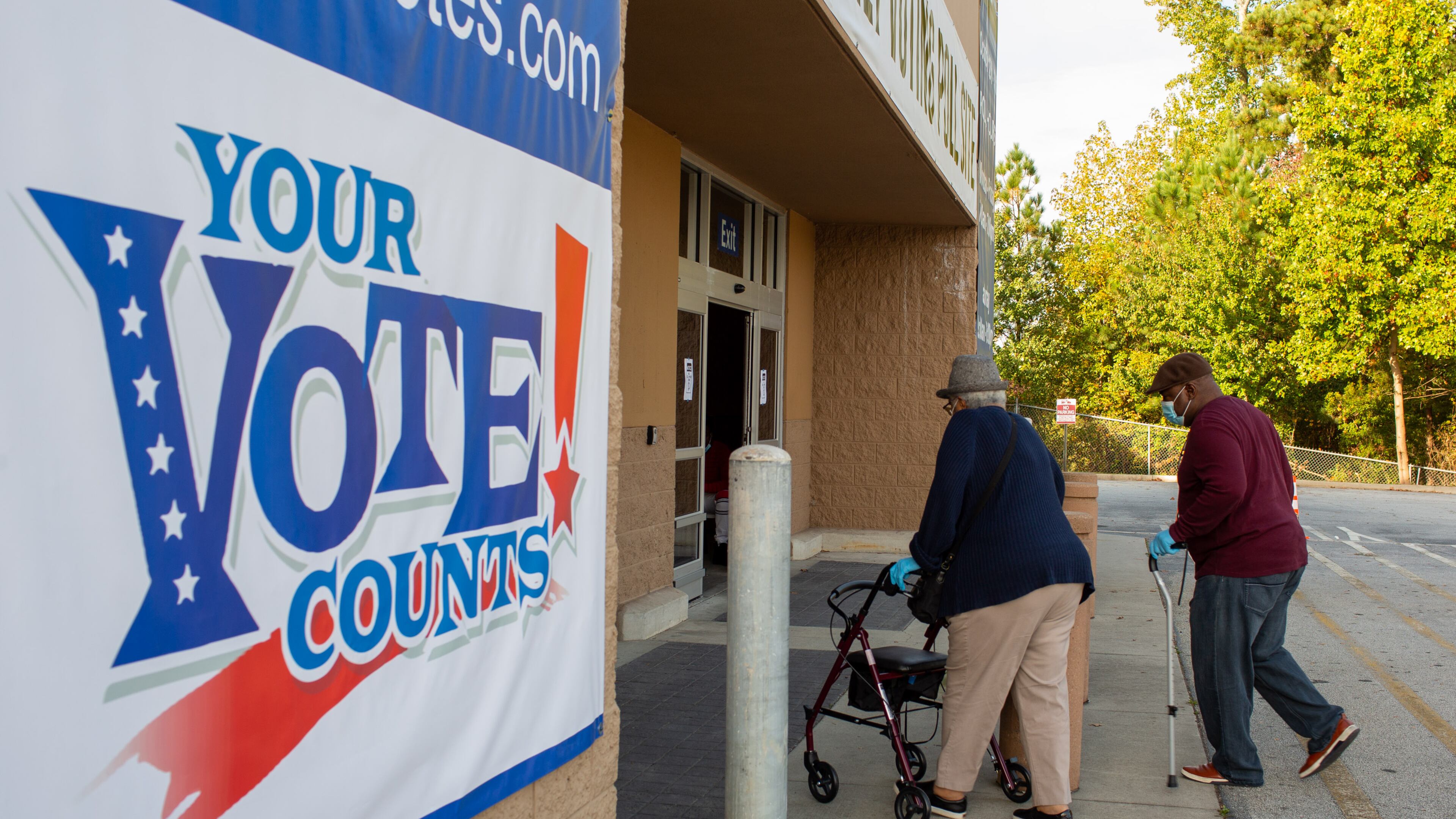Older voters, and those with disabilities, may skip voting lines

Georgia’s voting lines, exacerbated by the coronavirus pandemic, have created issues for older voters and those with disabilities. For these people, waiting in an hours-long, unsheltered line can easily go beyond discomfort and verge on dangerous.
However, people age 75 and older, and those with physical disabilities, are allowed to skip voting lines in Georgia. According to the Secretary of State’s office, people in those categories can notify a poll worker when they arrive at their polling place between 9:30 a.m. - 4:30 p.m. to simply move to the front of the line. Polling places are open in Georgia from 7 a.m. - 7 p.m. on Election Day.
The policy has created frustration for some voters who saw signage at their polling places only after waiting in line for multiple hours. Diana Kiehl, a voter in Savannah, said she waited for two and a half hours Friday before seeing a notice posted outside of her polling place that some voters could skip the line.
“An old gentleman passed out and was taken away in an ambulance,” Kiehl said after noting that he had also waited in line for more than two hours. She said that she asked poll workers to post the notice farther back in the line, but was told that they were “in compliance.”
Atlanta voter David Berins, 75, had a similar experience voting at Chastain Park on Oct. 13, the second day that early voting polls were open. He and his wife waited about an hour to get to the front of their line, where a poll worker asked his age and told him he could move to the front. Inside, only one check-in station was being used and several voting machines sat open, which Berins said was “infuriating.”
At the time, the voter check-in system was creating a bottleneck that resulted in long lines at many polling places. Georgia Secretary of State Brad Raffensperger has said that the issue has been solved with the state’s voting software vendor.
Raffensperger’s office has praised Georgia voters for a historic turnout so far and has said that it expects the record volume of voters to continue.
With that expectation in mind, voters should keep in mind that long lines represent a bigger obstacle to their older and disabled neighbors. If you see someone who falls into one of these categories waiting in line, consider reminding them that they may skip to the front or notify a poll worker on their behalf.


